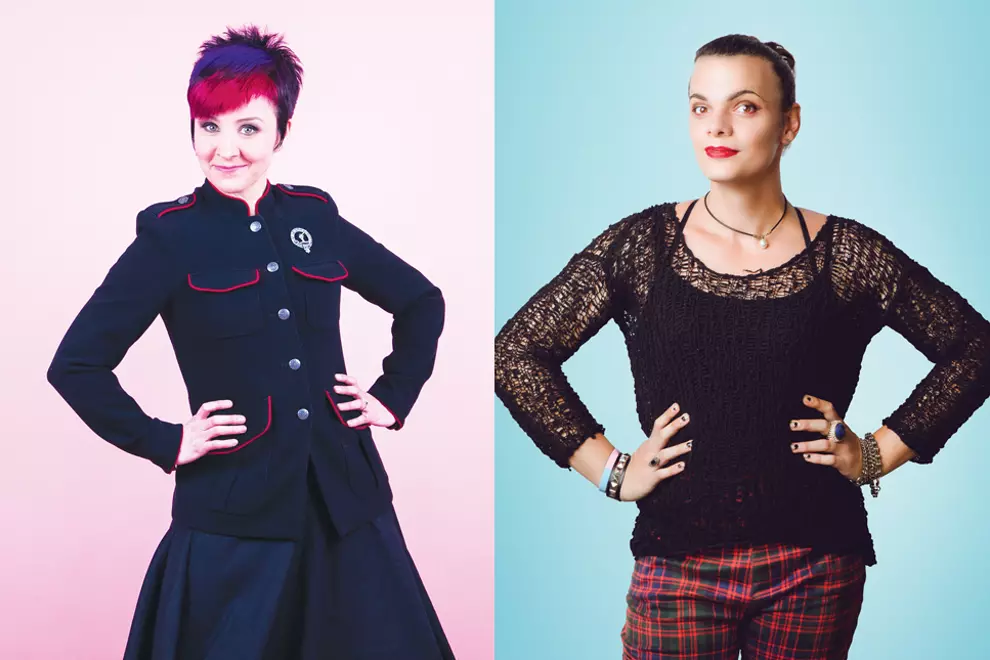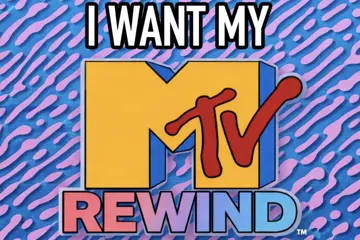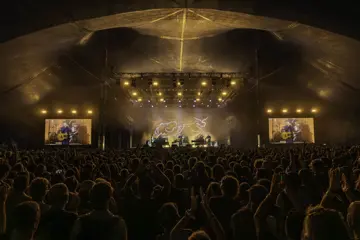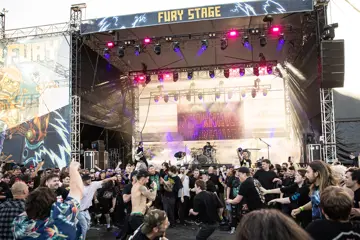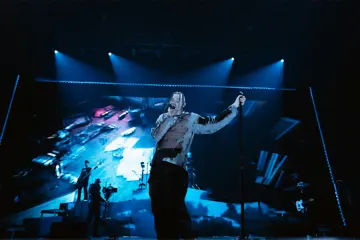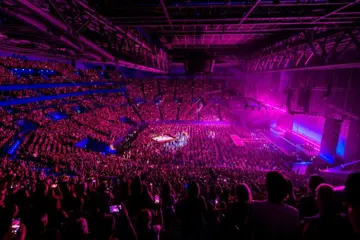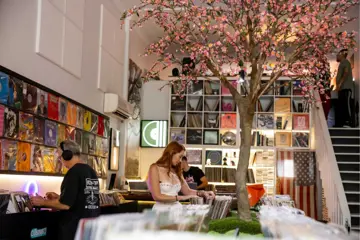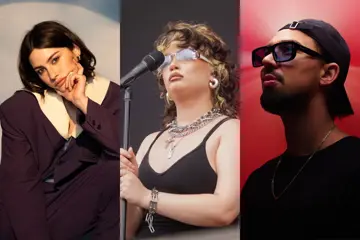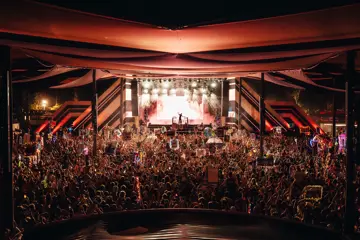“What I really love is stories,” Cal Wilson begins. The Kiwi comedian has been delighting Aussie audiences with her vibrant jokes and stories ever since she first moved across the Tasman in 2003.
“I love telling stories, and I love hearing other people's stories as well,” she continues. The host of the Melbourne iteration of global storytelling slam The Moth brings her new 2019 show Gifted Underachiever to Brisbane Festival in September.
The show sees Wilson telling stories from her childhood, before looking into the future, talking about her hopes for her son, Digby. Ultimately though, her show, told “with lots of gags thrown in, it’s not serious”, is part of an overall effort to connect with people – and for people to connect with other.
“I think as humans all we want to do is connect, we just want to connect to each other, and storytelling is such a great way to connect with people.
“I just really love the humanness in storytelling. If you can make it funny, obviously that is a great thing to do, given it's a comedy show. I get a real joy out of telling stories that connect people.”
Don't miss a beat with our FREE daily newsletter
Cassie Workman, winner of Sydney Comedy Festival’s Best Of The Fest for her show Giantess – for which she was also nominated for the MICF Award and a Helpmann for Best Comedy Performer – sees herself as the creator of fables.
Giantess is an intimate work, told through a mixture of illustration, music, storytelling and traditional stand-up. It uses the analogy of a young and awkward giantess, captured by a troll, to tell Workman’s story of coming out as a transgender woman.
“The reason why I wanted to package [Giantess] as kind of a fable is because I wanted to reach a more innocent and less critical part of the psyche of the viewer,” Workman explains. “So that I could depoliticise some of the things surrounding trans people and just reach a human element inside people and tell my story that way.”
Her intention was always to reach cis people – people whose gender identity matches the sex they were assigned at birth – and to talk to them about her experience in a relatable way.
“I wanted to reach cis people with this story, because I feel like being trans and transition can be very difficult for people to understand. And gender dysphoria can be very difficult for some people to understand, having never experienced it.”
Workman’s comedy often leans towards a kind of meta-comedy, deconstructing jokes in the very act of telling them. Yet, that understanding of the mechanics of a joke somehow only adds to an audience’s experience.
“I became bored with the artifice of stand-up,” Workman shrugs. “I found it too predictable, and I began to resent what I was doing. So I turned to deconstruction as a way to pull back the curtain if you like, and show people that there's no magic involved and yet somehow create more in the process. I really like ruining it for everyone – that just brings me joy, I don't know why.”
Wilson has never performed at Brisbane Festival and says she’s excited “to be part of the festival-festival”: “It feels like I’ve been invited to play with the grown-ups,” she quips.
But she has performed as part of musical improv show Spontaneous Broadway at Adelaide Cabaret Festival, and found herself thrilled by the work she was exposed to in that setting: “You're surrounded by people doing really different things and displaying different talents.
“At a comedy festival, it's always really inspiring to see what other people do with comedy. But then when you're part of the Cabaret Festival or something, I'm surrounded by people who have skills that I do not possess and will never possess in my life. And it's exciting in a whole other way because you're outside your expertise.”
Workman jokes that a festival-festival audience, as opposed to one at a comedy show or comedy festival, “makes me feel like I’m funnier than I am”.
Giantess was originally produced for Sydney’s Batch Festival at Griffin Theatre in late 2018, and alongside comedy festival runs, Workman has also performed the show at Brisbane’s festival devoted to queer arts and culture, MELT.
“[Festival audiences] are more theatre-oriented and they’re more ready to go on a weird journey,” Workman says.
“Comedy is a lot more of a breath of fresh air for them than it is for obviously a stand-up club or a comedy festival audience. They're usually a bit more excited by jokes.”
Workman defines the role of a comic in our time as the same as at any other, as a “barometer of society and how healthy the society is”. She describes that measure as relating not just to what people are allowed to say or criticise, but also the way a comedian acts as “a historian of the general feeling of a society, of the zeitgeist”.
“It’s your job to basically tell people what they’re already feeling, or what they don’t know they’re already feeling, more accurately.”
For Wilson, a comedian’s role isn’t prescribed – the onus is on individuals to work out what kind of comic they want to be. When she tries to articulate what her goal as a comedian is, Wilson lands again on the importance of connection.
“My personal aim is I want to say something that's meaningful to me, I want people to feel included, and I want people to leave feeling better than they did when they walked in the room.
“It's a bit hippy, I guess,” Wilson demurs, “but [it’s] that feeling of connection – there's nothing more lovely than being in a room full of people who are all laughing together.”

